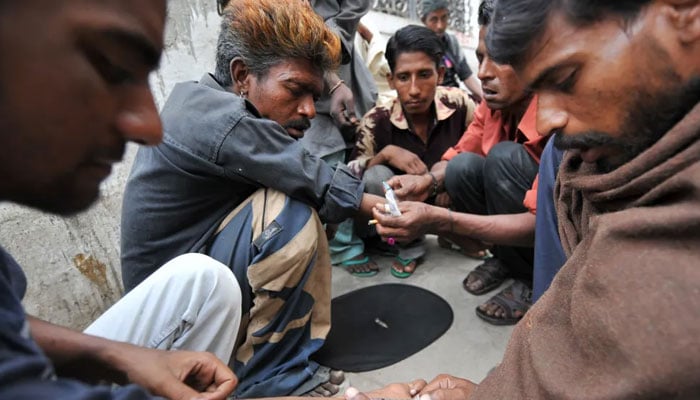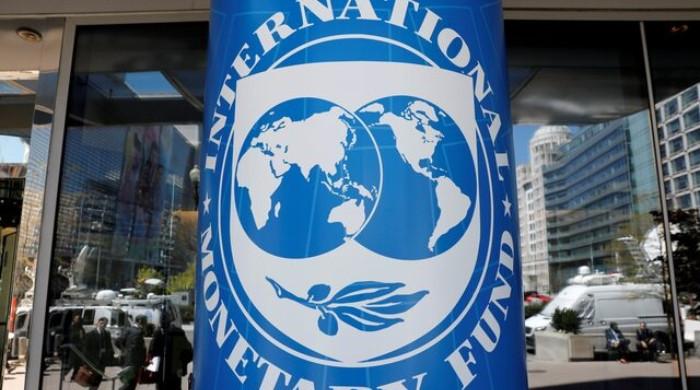Substance abuse: A silent epidemic among disaster victims
Integrating substance use prevention into disaster management strategies by adopting an interdisciplinary approach is crucial
September 20, 2024

In many developing countries, including Pakistan, a rapid increase in drug addiction is a growing concern, despite significant advances in the science of addiction. Unfortunately, it is still primarily regarded as an ethical or moral failure. Due to this misconception, even global health authorities, such as the National Institute of Mental Health (NIMH), define drug addiction, also called substance use disorder (SUD), as a serious brain disease or mental health condition.
According to the NIMH, SUDs affect the function and behaviour of the brain, disrupting its ability to regulate the use of substances, whether for recreational purposes or legal or illegal use. This includes alcohol, prescription drugs, and illicit narcotics like heroin and cocaine. The repercussions include dangerous and harmful impacts on an individual’s health. Additionally, it damages the social fabric of society, family structure, careers, and relationships.
Poverty, unemployment, separation, psychological stress, and mental disorders like depression and anxiety are risk factors that push a normal, healthy person toward drug addiction.
Different scientific studies show that people with SUDs often suffer from co-occurring mental health issues, such as bipolar disorder, depression, and anxiety. However, the association between these disorders is multifaceted and not necessarily causal.
Researchers discuss three possible pathways: shared risk factors (such as genetics or environmental trauma), substance use as a coping mechanism for existing mental disorders, and the possibility of mental disorders developing as a result of substance abuse. Although the impacts of climate change are well discussed and recognised globally, its psychological effects still need to be explored, especially in vulnerable communities.
The mental health issues and challenges discussed are further exacerbated by numerous environmental stressors, such as economic disparities and poor infrastructure, alongside continued exposure to natural hazards and human-induced disasters.
Vulnerable communities that are greatly exposed to such calamities due to their geographical locations experience multiple health-related challenges and stressors, including anxiety and fear about future hazards, loss of family members, wealth and associated livelihoods, internal displacements, and the horror of becoming refugees, all of which can trigger or further worsen mental health disorders.
For instance, the consequences of Hurricane Katrina in 2005 and Hurricane Sandy in 2012 confirmed how natural hazard-induced disasters can lead to extensive and prevalent health issues, such as post-traumatic stress disorder (PTSD), anxiety, and depression, which usually continue after catastrophic events.
These psychological challenges can further increase substance abuse and confound recovery efforts among vulnerable communities, potentially undermining drug supply and demand reduction efforts of national and international organisations, government departments, and law enforcement agencies in developing countries.
In Pakistan, mental health and substance use disorders are under-addressed issues, and the UNODC’s report for 2013 has further confirmed this argument. Poor and inadequate healthcare infrastructure and services, alongside stigmatisation, leave those affected by SUDs underserved and marginalised.
According to the report, 6.7 million Pakistanis used some form of substance in 2012, with over 4 million addicted to drugs like cannabis, heroin, and prescription medications. Although the relevant government departments, law enforcement agencies, and national and international organisations are making rigorous efforts to combat drug supply and demand, the situation still demands an adequate response.
Unfortunately, the country has only 96 treatment and rehabilitation centres with the capacity to treat 30,000 patients annually. Furthermore, many of them have a shortage of experienced and trained staff, alongside a lack of evidence-based practices, putting many patients at risk of not receiving proper care. Similarly, the mental health care sector also has a confounding shortage of experienced staff — only one psychiatrist per 1,000 people and one child psychiatrist for every 4 million children.
Subsequently, thousands of people in the country, especially women, are at risk of not receiving treatment for psychiatric disorders like depression and PTSD. Furthermore, socio-economic factors, including poverty, unemployment, and family instability, significantly contribute to the increase in anxiety and depression-related cases.
The exposure of vulnerable communities to both natural and human-induced disasters, which is well documented, further deteriorates the situation in the country. For instance, the 2022 monsoon floods devastated the country, affected 33 million people, displaced 5.4 million, and caused extensive destruction.
To address these issues, it is crucial to integrate substance use prevention into disaster management strategies by adopting an interdisciplinary approach. Educational awareness campaigns at schools, colleges, and universities, along with life skills training programmes, can play a significant role during the prevention phase, while evidence-based approaches for the treatment of addiction may be implemented during the rehabilitation phase.
Without swift action, the rising tide of substance abuse and exposure to climate change could impose an irresistible burden on Pakistan’s already fragile healthcare system.
The writer is a climate change and substance abuse policy advisor. He posts on Facebook/X/LinkedIn @UsmanAShamim
Disclaimer: The viewpoints expressed in this piece are the writer's own and don't necessarily reflect Geo.tv's editorial policy.









